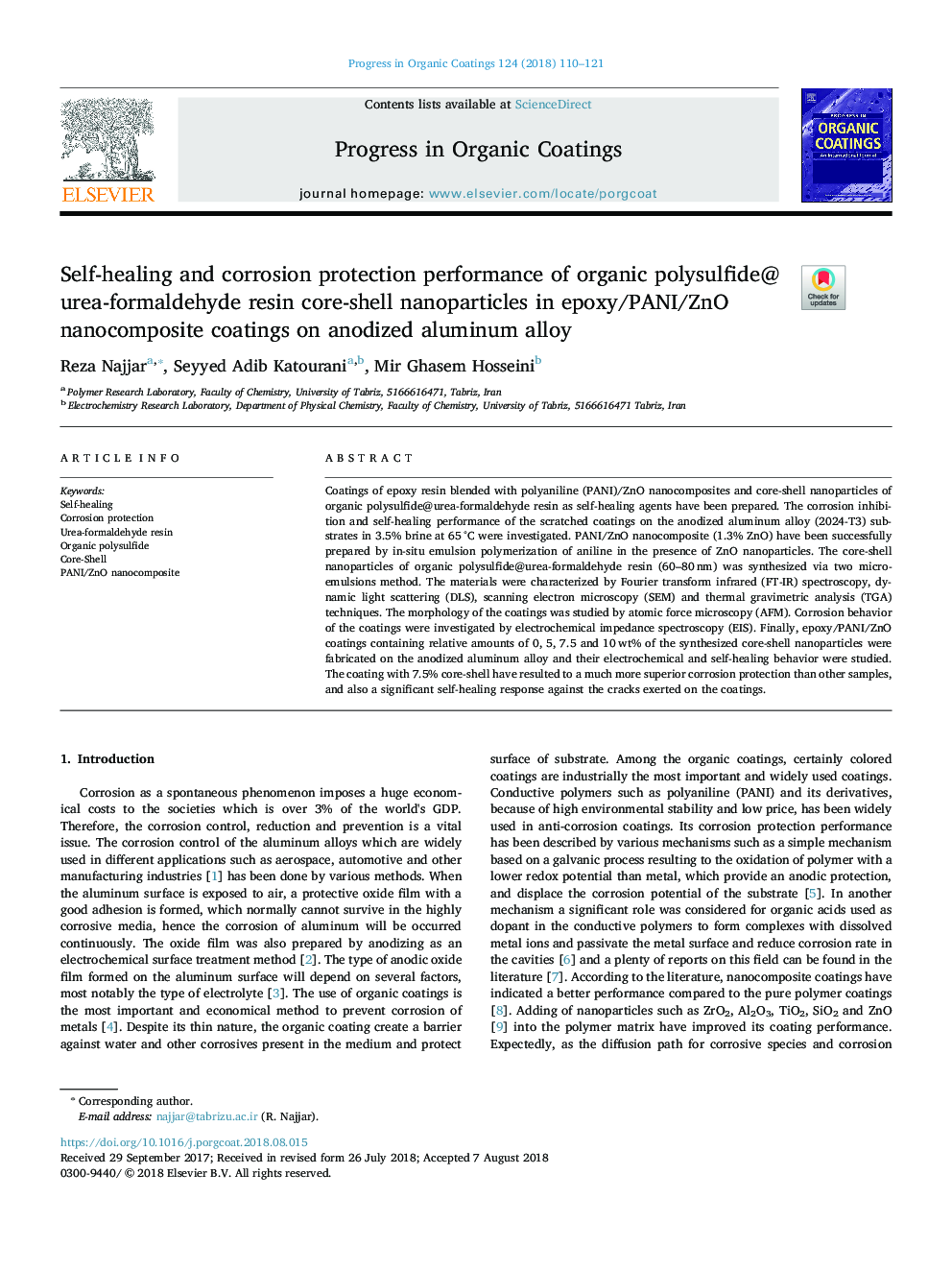| Article ID | Journal | Published Year | Pages | File Type |
|---|---|---|---|---|
| 7105245 | Progress in Organic Coatings | 2018 | 12 Pages |
Abstract
Coatings of epoxy resin blended with polyaniline (PANI)/ZnO nanocomposites and core-shell nanoparticles of organic polysulfide@urea-formaldehyde resin as self-healing agents have been prepared. The corrosion inhibition and self-healing performance of the scratched coatings on the anodized aluminum alloy (2024-T3) substrates in 3.5% brine at 65â°C were investigated. PANI/ZnO nanocomposite (1.3% ZnO) have been successfully prepared by in-situ emulsion polymerization of aniline in the presence of ZnO nanoparticles. The core-shell nanoparticles of organic polysulfide@urea-formaldehyde resin (60-80ânm) was synthesized via two microemulsions method. The materials were characterized by Fourier transform infrared (FT-IR) spectroscopy, dynamic light scattering (DLS), scanning electron microscopy (SEM) and thermal gravimetric analysis (TGA) techniques. The morphology of the coatings was studied by atomic force microscopy (AFM). Corrosion behavior of the coatings were investigated by electrochemical impedance spectroscopy (EIS). Finally, epoxy/PANI/ZnO coatings containing relative amounts of 0, 5, 7.5 and 10âwt% of the synthesized core-shell nanoparticles were fabricated on the anodized aluminum alloy and their electrochemical and self-healing behavior were studied. The coating with 7.5% core-shell have resulted to a much more superior corrosion protection than other samples, and also a significant self-healing response against the cracks exerted on the coatings.
Related Topics
Physical Sciences and Engineering
Chemical Engineering
Process Chemistry and Technology
Authors
Reza Najjar, Seyyed Adib Katourani, Mir Ghasem Hosseini,
